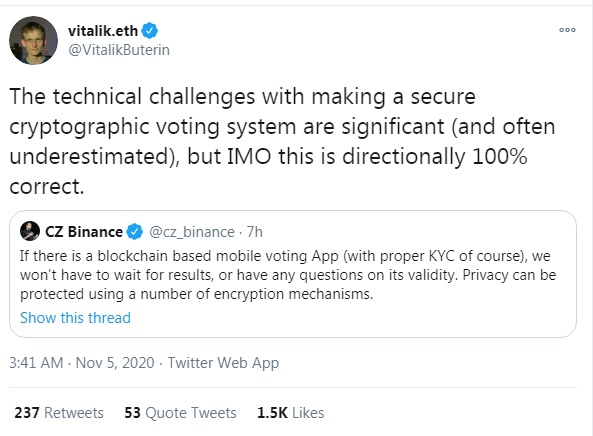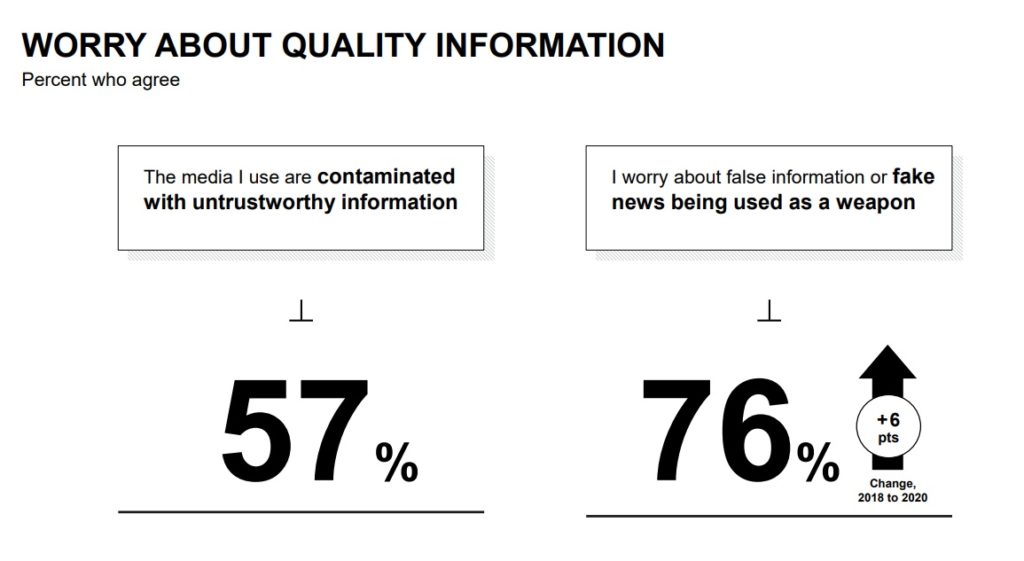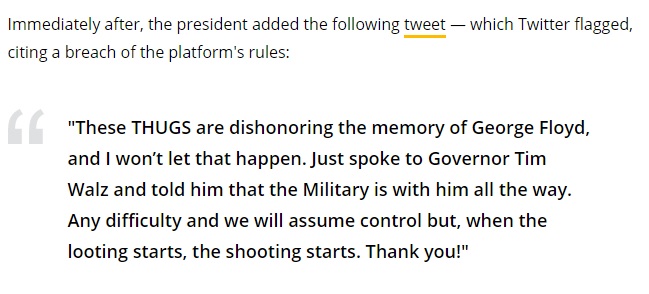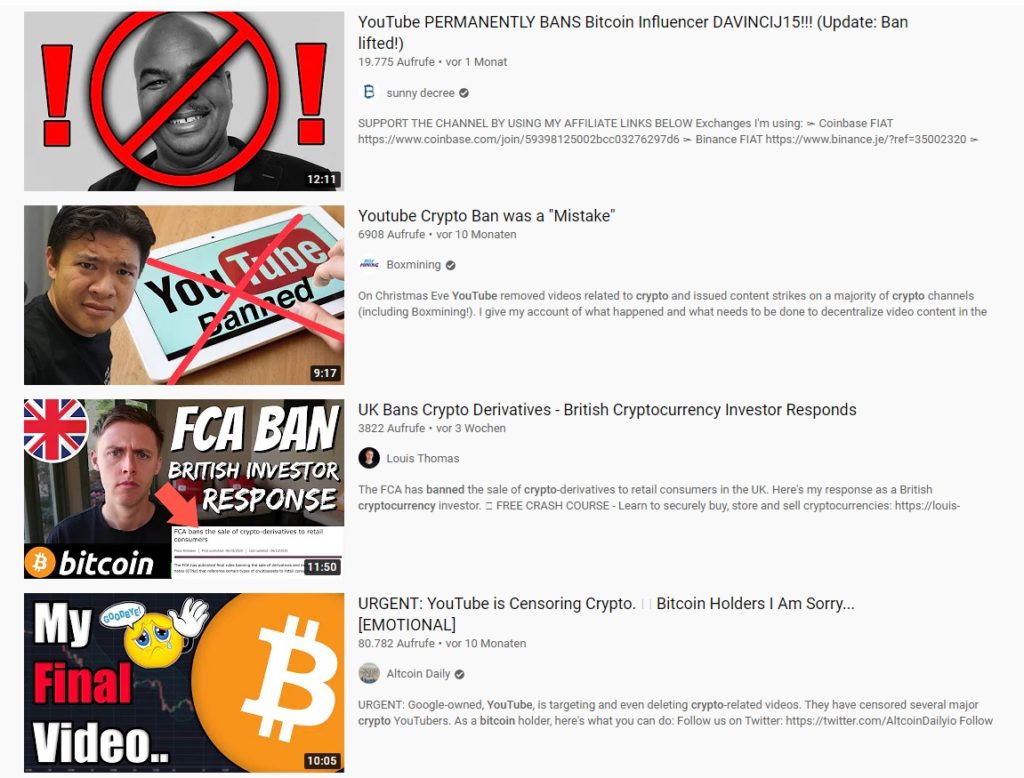- 9. November 2020
- Posted by: Dopplersaufer
- Category: BitCoin, Blockchain, Cryptocurrency

About distrust and manipulaton
If the recent US election done one thing, then to show how flawed the system is and how eager we should be to build a reliable system for voting and neutral media coverage. The situation today:
- The trust in the old fashioned election system is gone
- The trust in the governments is gone
- The trust in mass media is gone
Getting rid of the chosen electors system and REDMAP district re-arrangement gerrymandering is crucial to bring back democracy to US elections. Using decentralization and Blockchain technology could be the way for elections and media to make them reliable and honest again. The goal must be a voting system that is 100% correct and security of a sincere and neutral news outlet without any bias.
If you want to jump to the solutions click

The crypto world speaks
As for voting, Binance CEO CZ pointed out in a tweet:
Develop something now, get it approved (obviously hardest step), and get 300 million plus (fully KYC’ed) users in 4 years time. Any capable developer should be willing to do it ‘for free
Ethereum founder Vitalik Buterin agreed with the hint that a technical solution could be difficult to implement. Cardano founder Charles Hoskinson also believes blockchain voting is the right path and tweeted they are already working on such a solution.

It´s a fact that such a solution is feasable because it got done elsewhere already. A few months ago, Russia has successfully used a blockchain-based voting system built on Waves, recording almost 30,000 votes. Source
As for the US election, AP News published updates on the blockchain, so did Verizon, but that´s just half the deal. Where did they get the info? If I feed a system with the wrong data it will produce something but not an actually truthful result. Source1 / Source2
The fact that trust is declining and acute crises contribute to boosting the power of the state, but who controls the state? Definately not the politicians and even less the voters. As Jean Claude Juncker, president of the European Union once put it: Those who get elected don´t decide, and those who decide don´t get elected.
Another reason to work on a blockchain voting method that works and puts people in charge that are worth of our trust. And if we can´t do that, lets put our trust in technology.
The solution for a trustworthy blockchain voting system
At the time of this post, Joe Biden won the election, but Donald Trump already confirmed he will legally fight that outcome. Whoever wins eventually, it will leave a foul taste in peoples mouths for both sides and trust will decline even further.
Blockchain-based voting apps that improve democratic processes for future elections could be the solution, to have a clear, 100% true and correct result of an election.
In the USA; pretty much every adult citizen has a social security number. That could be used as an identifiaction. The interconnectivity of your social number or your passport ID can be connected to your voting. Let me explain but keep in mind the disclaimer that this is just a basic outline of an idea. However, it could be a starting point to build on. Here is my proposal:
1.) The setup of a blockchain voting system based on SHA-512 encryption with 2 side chains
After Google announcing quantum supremancy in late 2019, (real or not) an upgrade version of the currently used SHA-256 encryption is necessary. The basic blockchain will include a smart contract that collects, verifies and process all the data that are necessary in the voting procudere as outlined in the following points. The 2 side chains will control that. The main priority is the immutability, which in case of someone trying to manipulate the main chain, will trigger an instand stop and an alarm. The completely seperated side-chains can synchronize their control data, again with a double check if the data is correct and nobody tried to meddle with it.
2.) The blockchain nodes must be distributed equally
50% running on Rebulicans servers and 50% running of Democrats servers. Again a reason why we need to controling side chains to avoid buying an additional percent on one end, being able to alter the information.change
3.) After the technical setup is ready to go, the blockchain gets fed
Chainlink (more info here) already did a great job of connecting real life data to the blockchain. Based on their solution, data from all eligible voters can be put into the blockchain. That is first name, last name, adress, social security number or passport number. We need that as a basic level of info the the next steps. All info needs to be encrypted certainly.
4.) A registered letter to every voter
A registered letter send to the voter contains a link to a website, a unique user name and password. The important part here is that the letter is registered and is only allowed to get picked up by the voter and nobody else. The voter needs to sign that he received the letter. The signing should be done electronically so there is one more proof that it´s the voter and not someone else. The signature should be put in the blockchain as well, so if there are uncertainties in the aftermath, everybody can have a close look if he or she really signed the receipt letter.
5.) The change of password
To be able to send the vote, the voter needs to go online and visit the website the registered letter provides. The first thing is to change his password. The fact that the password got changed needs to be put on the blockchain as well. This is another security mechanism.
6.) The actual blockchain voting
When the voter is online, changed his password, he needs to enter his full name, social security number and the user name to be able to finally vote for the candidate of his choice. The smart contract will ensure that the election stays anonymouse be mixing various variables or using zero knowledge systems so the vote itself is not traceable back to the voter. That will be secured even more by a random time delay in the vote count to avoid a connection of a vote to a login.
Honest and truthful media coverage
We need to make media accountable again and that could be done with a blockchain-based news tracking system. It´s necessary to take the decision of what is „news-worthy“ and what is actually truth out of the chief editors hands.
Think of the impact on the delivered news of people like Rupert Murdoch, Michael Bloomberg or Arianna Huffington.
“If you let me control the media of a country, I don´t care who sits in the parliament“
The altered quote from Nathan Mayer Rothchild who said something similar about the money supply of a country, shows the serious issue we face in the journalism space.
However, in Media, tabloids and social media, the situation is even more complicated. To secure authenticity and correctness of the transported news, it needs more than a technical solution. E. g. Journalists need to be incentiviced to broadcast just the truth in a way that bribing won´t work anymore.
And trust is already declining. A recent Gallup/Knight study found that nearly 8 in 10 Americans think the media is trying to convince people “to adopt a certain opinion.
The following screenshots are taken from the Edelman Trust Barometer

One more survey with the same result from Morning Consult: Media Credibility Survey
A tragic Social Media example:
Defund the police a nation wide request as perpetrated by the mainstream media? Turn out not. A survey conducted by Gallup and the Knight Foundation – Would you rather the police spend more time, the same amount of time or less time as they currently spend in your area?” Sixty-one percent of Black respondents said they wanted the same amount of time; 20% said more. Source Boston Herald
A tweet from Donald Trump from May following the killing of George Floyd:

As shown, in online media, we face another obstacle: Censorship! Beside the example above, think of all the censorship online, like Youtube banning crypto accounts for no reason.

And more Youtueb Censorship here: https://news.bitcoin.com/youtube-reinstates-bitcoin-coms-official-channel-after-suspension/
Fake News / Deep Fake / Who can say what is right?
Certainly there are 2 sides of the coin (pun intended) , and one is to keep fake news out of the equation.
Conspiracy theoriest all over the world are influencers and sociel media broadcasters as well and just as governmentally controlled mass media, they just provide content fitting to their audience. It´s no difference to mainstream. People like to hear that they are right, and prefer to listen to voices that confirm their opinion.
The exaggeration of statements, true or not, is the knife in the back of the real truth seekers.
Another problem is the incredible things you can do with modern technology and AI using Deep fakes. If you don´t know what that is, check out that video
Deepfakes could be used for nefarious purposes but more certainly for to install a bias towards someone or something. As a matter of fact, todays AI and faking technology makes it almost impossible to differentiate the fake from the real person.
Imagine a deep fake video with the president of a powerful nation declaring war on another nation. While that would lead to a clarification within a short time, unmasking the fake as what it is, it still coud trigger tensions between 2 countries.
What are the actual incentives for journalists to report the truth?
Moral and Ethics can´t by your dinner so we need to talk about compensating with cash or coins as well.
An option is a virtual tip glass from readers, but as the name suggestests, it´s a tip and nothing to live from. Everipedia and Steemit are blockchain based communities where users give incentives to others for their contributions. Nobody can live from that yet.
However there must be a way that bribes are no longer of interest and threats to journalists to get fired must become so difficult and expensive that it´s no longer worth it.
A proposal for blockchain based journalism
Transpareny must be the main priority in every story. While absolutely necessary, it´s certain that exactly that demand will be the reason why mainstream media outlets aren´t eager to change.
Anther challenge is the fact that not every news can be witnessed or an incident turn out otherwise then broadcasted. That´s why an immutable database as a backbone can´t work. If the backend is fed with misinfirmation, it´s impossible to deliver truthful news.
A few points that a solution couod be build upon and some examples:
- An incident happens and there must be witnesses or other proof
- Pictures need to be checked for deepfakes
- A story needs to be confirmed by at least 3 neutral, yet on-side confirmators
A smart contract can provide some basic transparency and immutability but it´s not a real life fact checker.
Example 1: World Covid-19
„The consequences of Covid-19 in terms of health and mortality will be mild compared to previous pandemics. At the end of June 2020, Covid-19 has killed less than 0,006% of the world population. The average age of those dying of Covid-19 is almost 80 years (in Italy).“ quote Klaus Schwab, founder of the World Economic forum in his recently released book „The big reset“.
Media must have access to hospitals and correct data and deliver them in the appropriate manner. It must be 100% clear about how many people are in the emergency rooms, how many of them have previous sicknesses and in the sad case of someone dying it must be 100% clear that it was from Covid or not! The faking of numbers need to stop!
Example 2: Nigeria EndSARS movement
„End SARS is a decentralised social movement and series of mass protests against police brutality in Nigeria. The slogan calls for the disbanding of the Special Anti-Robbery Squad (SARS), a notorious unit of the Nigerian Police with a long record of abuses“ – Quote Wikipedia.
There must be evidence of the abuse (there is plenty) and media must be able to bring that news and force politicians to act. People need to know what´s happening and that change is necessary.
Conclusion
We need to bring back the sincerity, honesty and integrity into elections and the distribution of information. Tweeting with #Fakenews don´t solve the problem, nor does a change in the management floor of the large mainstream media outlets. The integrity of journalists must be installed again, just as much as the integrity and trustworthiness of fair elections based on blockchain voting.
I hope the suggestions in this post trigger your creativity and maybe we can have a fair election supported by media campaigns that are based on honesty and sincerity.
